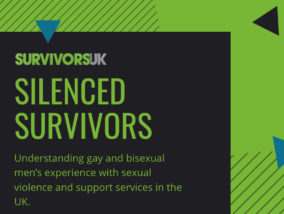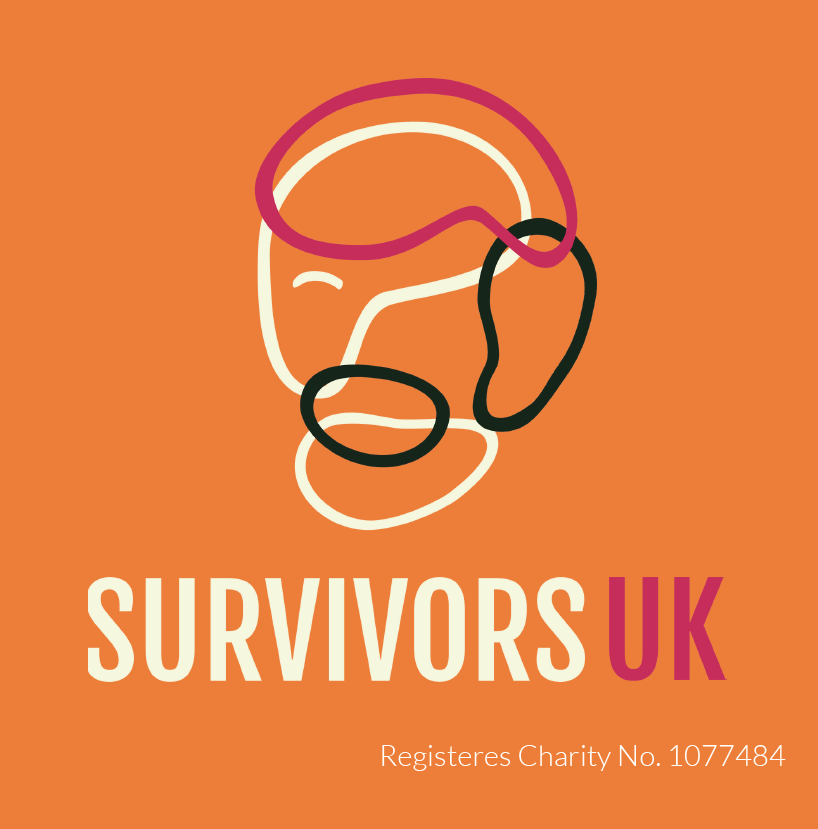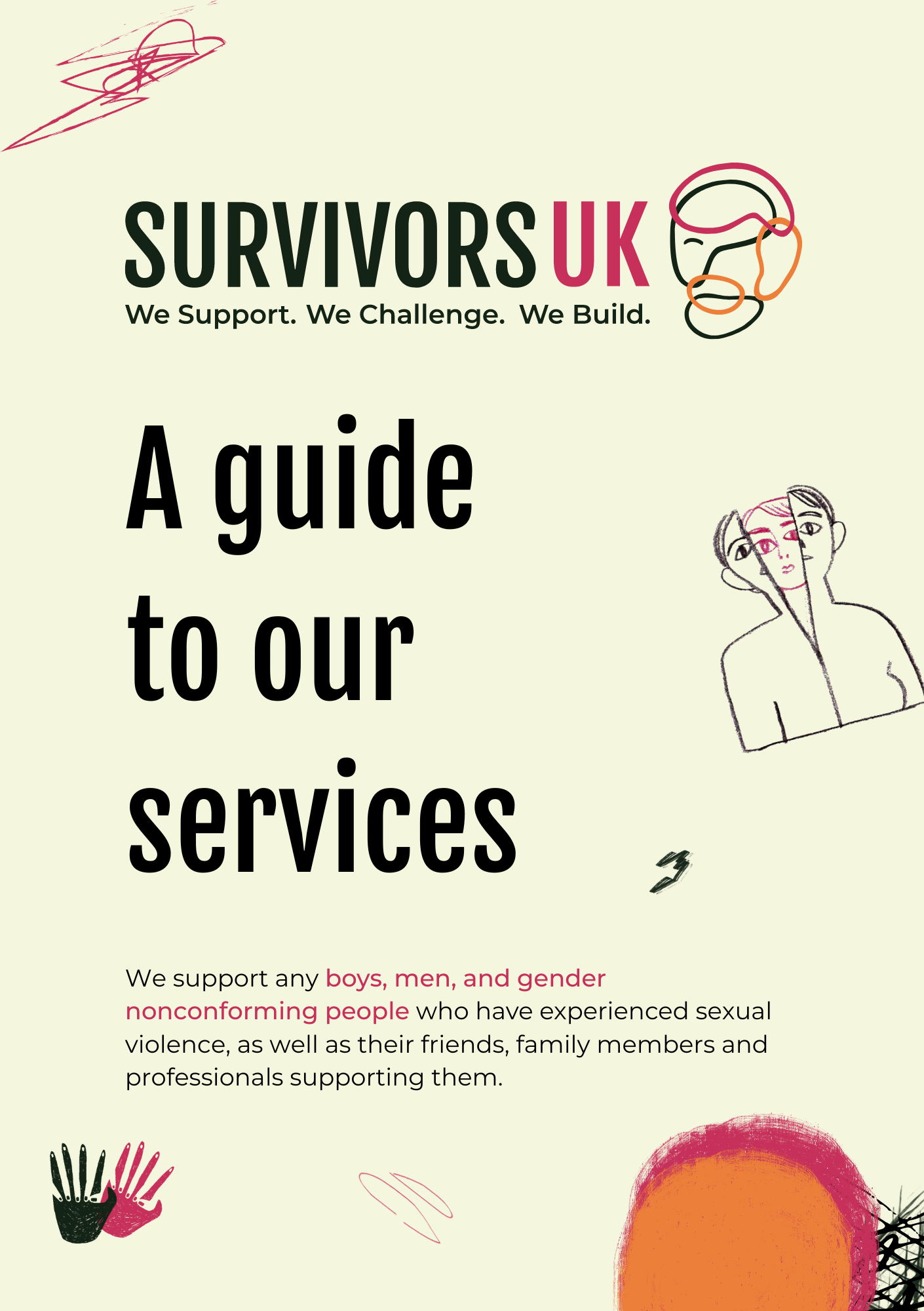
Silenced Survivors: Understanding gay and bisexual men’s experience with sexual violence in the UK
‘Silenced Survivors: Understanding gay and bisexual men’s experience with sexual violence and support services in the UK’ is the newest research report published by SurvivorsUK.
The report takes an in-depth look at the varying experiences of gay and bisexual men of different ages, races, and geographical locations across the country. It takes stock of their experience, and the attitudes the community has towards sexual violence.
There is a concerning lack of research into men and non-binary victim/survivors, especially those identifying as gay or bisexual, and so this research offers a groundbreaking, initial understanding of an issue that is, undeniably, impacting the community incredibly hard.
When we compare these findings to other recent studies focusing on men overall, we see that gay and bisexual men are more than twice as likely to have experienced sexual violence.
The fact that almost half of gay and bisexual men have experienced sexual violence and more than a third felt they couldn’t tell anyone about it should be of grave concern to us as a society.
There is much work to be done to raise awareness about this issue in the LGBTQ+ community and beyond as well as ensuring that the police and criminal justice system, which currently fails so many survivors, is a safe and accessible place for gay and bisexual men. It is absolutely crucial in opening up this challenging discussion that oxygen is not given to any of the dangerous homophobic rape myths which are prevalent in our criminal justice system and blame victims; in particular, the false assumption that gay and bi men are promiscuous so therefore their consent is somehow assumed or has less value.
Suggestions such as “gay people are more likely to be sexually assaulted” can be harmful and can generate fear that expressing their sexuality could lead to an instance of sexual violence when in reality survivors, or their identity, should never be seen as the reason they experienced sexual violence.
For the most part, it is now generally socially understood that sexual violence wasn’t the victim/survivor’s fault. It wasn’t what they were wearing, where they were, how they were travelling home, and it also has nothing to do with the victim/survivors’ gender identity or sexuality. Yet, we can be exposed to these myths time and time again and can put ownership on victim/survivors to debunk falsities forced upon them.
Myths create significant barriers for seeking support and speaking out about what they have experienced. Society has built up complex obstacles for male survivors that are extraordinarily difficult to come through – meaning that it takes, on average, 26 years for men to tell someone about sexual violence. This silence could be interpreted as not needing support.
Again, when we look deeper, the intersectional, marginalised communities of gay and bisexual men who are also survivors of sexual violence face additional complex barriers which compound silence around the topic. These barriers, or myths, have created an idea that gay and bisexual men are unaffected by sexual violence.
We hope that this research will work to provide a better insight into the true experiences of gay and bisexual men, and will allow for authorities, institutions, organisations, and venues to adapt and improve.
Given its innovative nature, we understand that some of this research may leave us with more questions. However, it is a valuable first foray into the issue of sexual violence that gay and bisexual men face, and we hope it will inspire further research into a frequently misunderstood topic.
The research was commissioned by SurvivorsUK and carried out by Survation, a polling and marketing research company. The findings were then analysed and the report authored by SurvivorsUK employees Meka Beresford and Sam Thomson.






